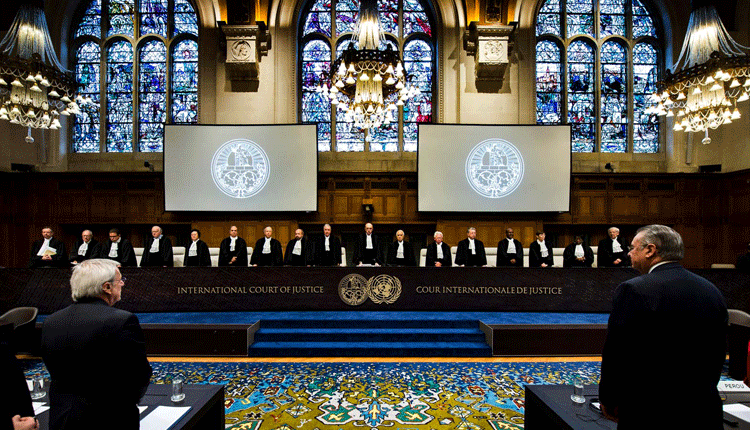Let’s not give up in protecting territorial borders
By HESBON OWILLA, October 18, 2021The International Court of Justice ruling probably did not come as a shock to many who have followed the maritime dispute between Kenya and Somalia.
Well, it was written all over the process that there were so many proxies in there and the dicey diplomatic space that Kenya occupies seems to have put Kenya in a very precarious position.
In fact, it does appear Kenya has been too good to our neighbours to the point of ceding more than it should for fear of being labelled a hegemonic power in the region.
We need to assert our progress because it is out of our sheer hard work and as one politician once put it “we need not walk while bending because our neighbours are short.”
Nevertheless, now that the ruling is out, this is not the time to look back and say we ought to have been more assertive and shown some intent in protecting our territory.
No, this is the time to resolutely make it clear we are not going to surrender any part of our territory.
Kenyans need to actively express anger and direct it to supporters of Somalia with the message that their quest for minerals is putting communities that have lived together, share a common culture and heritage in jeopardy.
Situating the dispute broadly, it is clear surrendering any inch of our territory is equivalent to surrendering sovereignty and in the maritime dispute with Somalia, this will not just be a threat to us but a trigger that would set a bad precedence and encourage other countries to make similar weird claims.
Going down south, there is Tanzania, Mozambique and South Africa and if the Somalia logic is to be applied, I suppose we will end up in some trouble that will threaten stability in the region.
In a world characterised by proxy wars that threaten global stability and security, it is important the world does not allow another opportunity for proxies to take advantage of the consequences of the sponsors believed to be on the prowl.
The sponsors are activating proxies with the sole intent of exploiting resources on the cheap in Africa and at the expense of the majority poor in Africa.
Rondeaux and Sterman describe proxy wars as sponsorship of conventional or irregular forces that lie outside the constitutional order of States.
Increasingly, the world is experiencing the challenge posed by shadowy State actors or, in some instances, irregular forces outside the order of the States that cause global turbulence.
The interest of the actors is almost always resources and they would pounce on any opportunity to the maritime border disputes beyond the Kenyan.
Taking advantage of vulnerable States and those headed by leaders who are more of merchant politicians is increasingly common and that appears to be how Somalia ended up hitting back at Kenya after years of support Nairobi has advanced to Mogadishu.
Scholars in international relations and security studies argue that sponsor actors easily succeed in fuelling proxy wars because transnational movements have erased geographical borders.
Simply put, sponsors of proxy wars can sit pretty in big cities of the world, but activate local entities in far flung least developed countries, ferment conflict or sponsor proxies who will do their bidding.
Kenya, did well to pull out of the ICJ process because the real litigants appear to have been shadowy sponsors, both within and outside the constitutional States; Somalia is a proxy.
It, therefore, does appear that the best pathway to deal with the issue going forward is to unleash the coast guard and the Navy.
Our territorial integrity must be defended and some statement of intent is important.
In doing this it is instructive to guard against the risk of diplomatic isolation by rallying like-minded ally States to counter the shadowy States and non-State sponsors whose agenda in all these maritime dispute is open secret. —hesbonhansen@gmail.com
